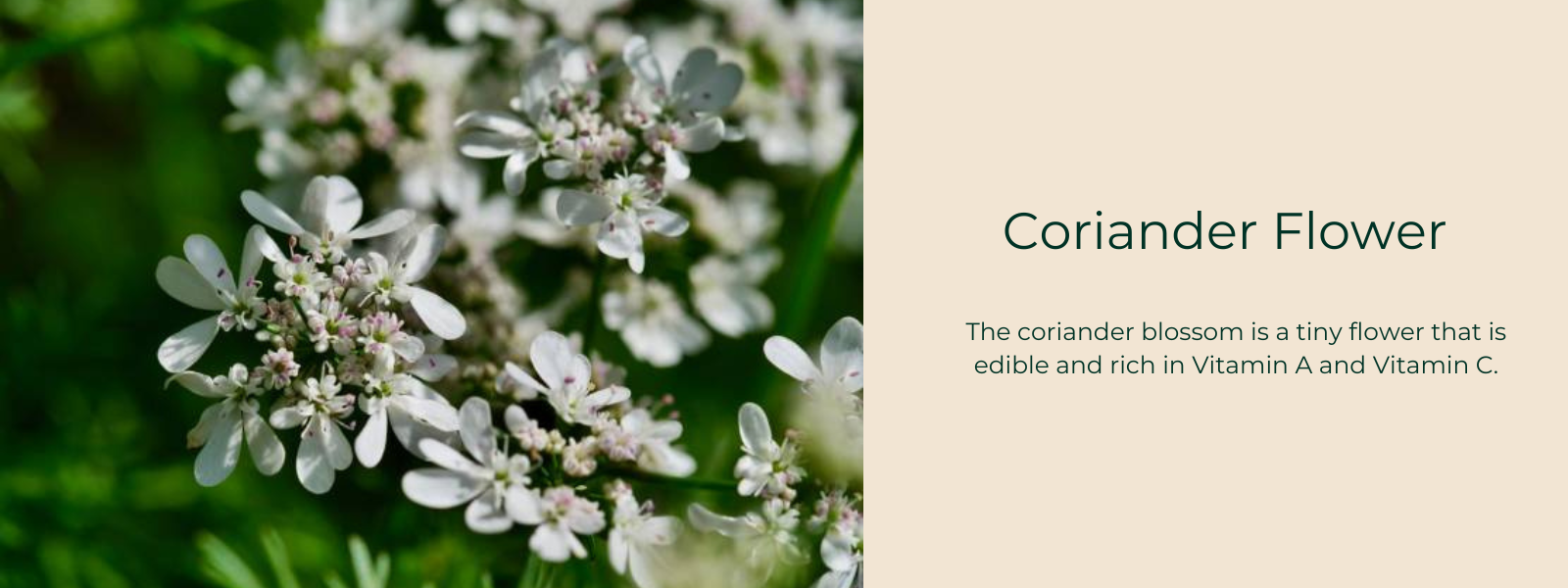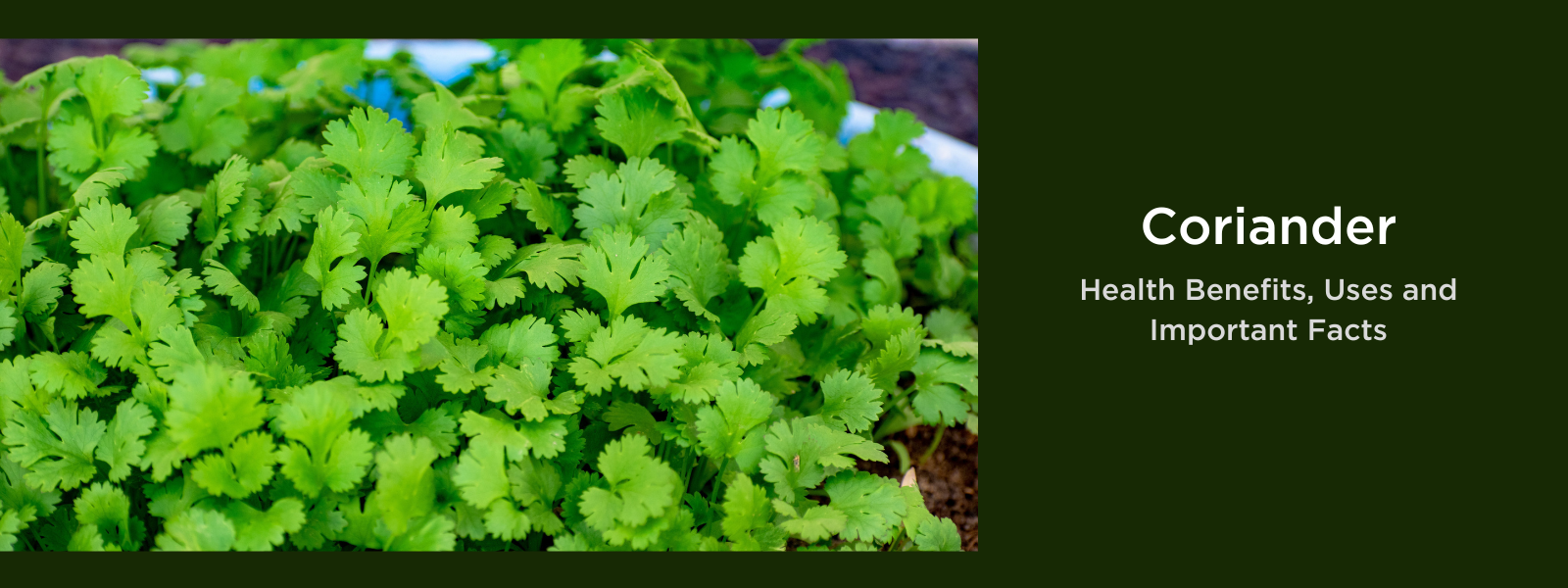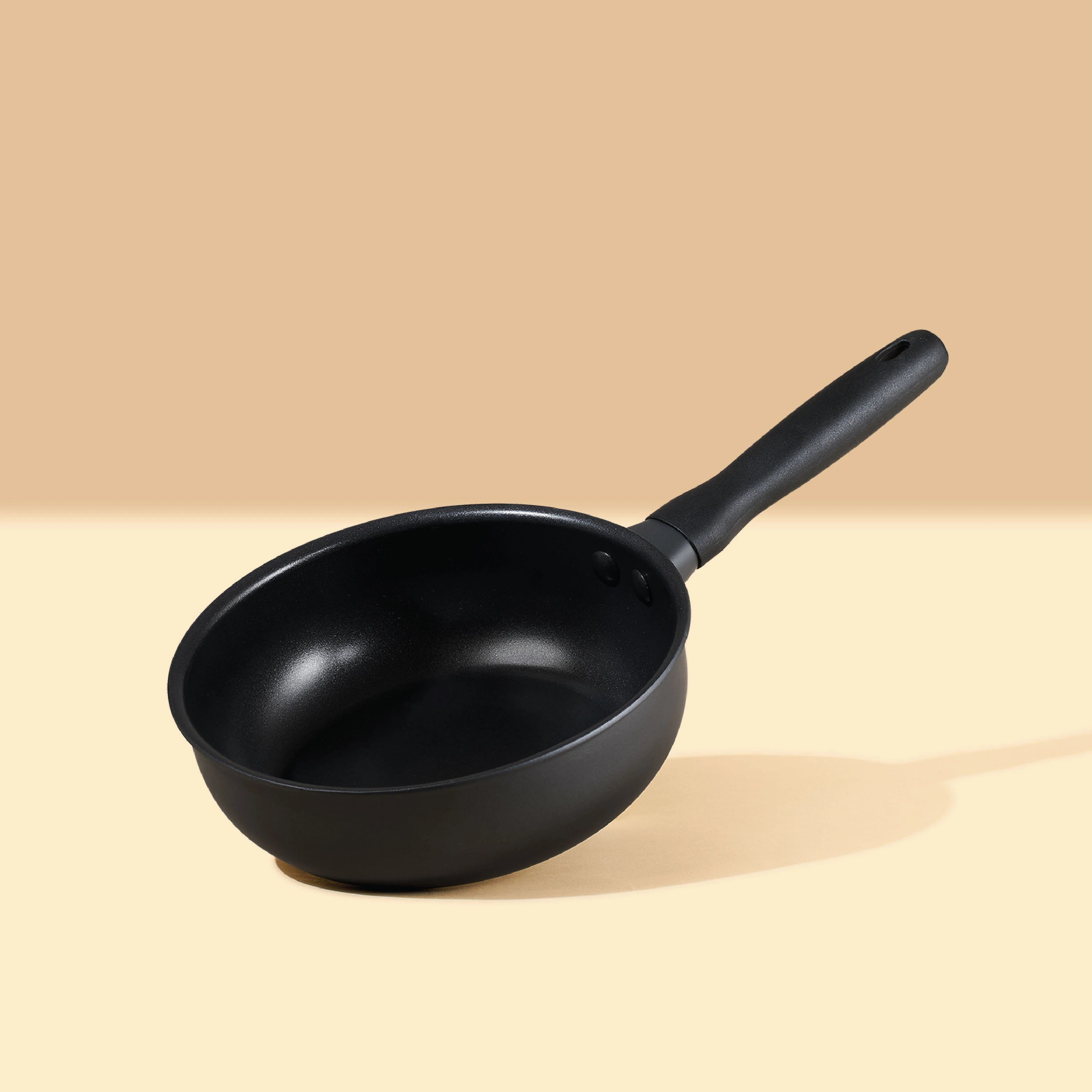Coriander, a staple spice in many cuisines, offers more than just culinary delight—it packs a punch for digestive health. Rich in antioxidants and exhibiting anti-inflammatory properties, coriander has been valued for its traditional use in promoting digestion. The spice aids in the production of digestive enzymes, potentially easing symptoms of bloating and indigestion. With carminative qualities, coriander helps alleviate gas and bloating, contributing to digestive comfort. Its antibacterial action may support a balanced gut microbiome, while the fiber content aids in regular bowel movements. Coriander's detoxification support and calming effect make it a versatile addition to dishes and herbal infusions, offering both flavor and potential digestive benefits.
Table of Contents
What Is Coriander?
Coriander, scientifically known as Coriandrum sativum, is an aromatic herb commonly used as a spice in various culinary traditions worldwide. It belongs to the Apiaceae family and is closely related to parsley, carrots, and celery. The plant is native to regions spanning southern Europe, northern Africa, and southwestern Asia.
Both the leaves and seeds of the coriander plant are used in cooking, each offering distinct flavors. The fresh leaves, often referred to as cilantro, have a citrusy, slightly peppery taste and are commonly used in salads, salsas, and garnishes. The seeds, on the other hand, have a warm, citrusy, and slightly sweet flavor, making them a key ingredient in spice blends, curry powders, and various dishes.
Coriander is known not only for its culinary applications but also for its potential health benefits. It contains antioxidants, essential oils, and compounds that may have anti-inflammatory and digestive-supportive properties. Additionally, coriander has been used in traditional medicine for its various therapeutic qualities.
Coriander For Digestive Health:
Coriander, a versatile spice used in various cuisines, not only adds flavor to dishes but also offers potential benefits for digestive health. Here's a closer look at the digestive advantages of coriander:
- Rich in Antioxidants:
- Coriander is loaded with antioxidants, including flavonoids, polyphenols, and terpenes. These compounds help neutralize free radicals and may contribute to a healthy digestive system.
- Anti-Inflammatory Properties:
- The anti-inflammatory properties of coriander may help reduce inflammation in the digestive tract, providing relief for conditions such as inflammatory bowel diseases.
- Aids Digestion:
- Coriander has been traditionally used to promote digestion. It may help stimulate the production of digestive enzymes and enhance the digestive process, reducing symptoms like bloating and indigestion.
- Calming Effect:
- The essential oils in coriander, such as linalool, may have a calming effect on the digestive system, potentially alleviating symptoms of irritable bowel syndrome (IBS) and other gastrointestinal issues.
- Carminative Qualities:
- Coriander is known for its carminative properties, helping to alleviate gas and bloating by promoting the expulsion of gases from the digestive tract.
- Antibacterial Action:
- Coriander exhibits antibacterial properties that may help combat harmful bacteria in the digestive system, contributing to a balanced and healthy gut microbiome.
- Regulates Bowel Movements:
- The fiber content in coriander seeds may contribute to regular bowel movements, preventing constipation and promoting overall digestive regularity.
- Detoxification Support:
- Coriander may assist in detoxifying the body by promoting the elimination of toxins, supporting liver function, and aiding the overall health of the digestive organs.
- Culinary Uses:
- Coriander is a versatile spice used in various dishes, from soups and stews to curries and salads. Including coriander in your cooking can add both flavor and potential digestive benefits.
- Coriander Tea:
- Prepare a simple coriander tea by steeping crushed coriander seeds in hot water. This herbal infusion may provide a soothing effect on the digestive system.
Use Of Coriander in Indian Cuisine:
Coriander is a commonly used spice in Indian cuisine, and it plays a significant role in aiding digestion. Here are several ways coriander is utilized in Indian cooking for its digestive benefits:
- Spice Blends (Masalas): Coriander is a key component in many Indian spice blends, such as garam masala and curry powder. These spice mixes often include other digestive-friendly spices like cumin, cardamom, and fennel, creating a flavorful combination that supports digestion.
- Curries and Stews: Fresh coriander leaves (cilantro) and ground coriander seeds are frequently used in Indian curries and stews. The spice adds a distinctive citrusy and slightly sweet flavor, enhancing the overall taste of the dish while potentially aiding in digestion.
- Chutneys and Sauces: Coriander is a common ingredient in chutneys and sauces, providing not only flavor but also potential digestive benefits. Coriander chutney, for example, often contains fresh coriander leaves, green chilies, and other spices, creating a condiment that complements various dishes.
- Teas and Infusions: Coriander seeds are sometimes used to prepare digestive teas or infusions in Indian households. These teas may be consumed after meals to promote digestion and alleviate digestive discomfort.
- Ayurvedic Remedies: In traditional Ayurvedic medicine, coriander is valued for its cooling properties and is used to balance digestive doshas. Coriander seeds are sometimes recommended in Ayurvedic remedies for digestive issues, such as bloating and indigestion.
- Fried Foods: Coriander seeds are often used in the tempering (tadka) of many Indian dishes. The seeds are fried in oil or ghee along with other spices before being added to the main dish. This tempering process not only enhances the flavor but also aids in digestion.
- Flatbreads (Roti or Paratha): Coriander leaves can be finely chopped and added to the dough for making flatbreads like roti or paratha. This imparts a fresh and aromatic quality to the bread and can contribute to digestive well-being.
Different Ways Of Using Coriander For Better Digestion:
Coriander can be used in various ways to promote better digestion due to its potential digestive-friendly properties. Here are different ways you can incorporate coriander into your diet for digestive well-being:
- Fresh Coriander Leaves in Salads:
- Add fresh coriander leaves (cilantro) to salads for a burst of flavor and a digestive boost. The leaves have a refreshing taste that complements a variety of salads.
- Coriander in Smoothies:
- Include fresh coriander leaves or ground coriander seeds in your smoothies. The citrusy and slightly sweet flavor can add a unique twist to your drink while potentially aiding digestion.
- Coriander Tea:
- Prepare coriander tea by steeping crushed coriander seeds in hot water. This herbal infusion can be consumed after meals to support digestion and alleviate bloating.
- Spice Blends (Masalas):
- Use coriander as a key ingredient in homemade spice blends or masalas. These blends can be added to various dishes, enhancing both flavor and digestive benefits.
- Coriander Seeds in Cooking:
- Incorporate whole or ground coriander seeds into your cooking. They can be added to curries, stews, soups, and rice dishes to impart a warm and citrusy flavor.
- Coriander Chutney:
- Make coriander chutney using fresh coriander leaves, green chilies, and other spices. This versatile chutney can be served as a side with snacks or as a condiment for main dishes.
- Coriander Infused Water:
- Infuse water with coriander leaves for a refreshing drink. This can be particularly beneficial when consumed throughout the day to stay hydrated while supporting digestion.
- Coriander in Lentil Soups (Dal):
- Use coriander leaves to garnish lentil soups or dals. The aromatic flavor of coriander can enhance the overall taste of the dish while providing potential digestive benefits.
- Coriander in Marinades:
- Include ground coriander seeds in marinades for meats or vegetables. This not only imparts flavor but may also contribute to easier digestion of the prepared dish.
- Coriander in Breads and Pastries:
- Add chopped coriander leaves or ground coriander seeds to bread or pastry dough for a unique flavor. This is a creative way to include coriander in your baked goods.











Leave a comment